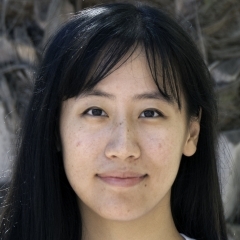
Date:
Location:
Speaker:
Title: The Formation of Multicomponent Nanoemulsions for Colloidal Synthesis
Advisors: Matthew Helgeson and Samir Mitragotri
Abstract:
Complex emulsions have received great interest due to their ability to be used as templates for the production of multi-compartment particles for a variety of applications. However, many applications (e.g. nanoparticle drug delivery, photonics, catalysis) require the use of nanoscale structures, creating a need for complex nanoemulsions with sizes < 200 nm. Although numerous methods exist to produce micron-scale complex emulsions, there have been few if any reports of similar complex nanoemulsions due to the large energies required for their formation, as well as a lack of strategies for controllably obtaining multi-phase droplet morphologies. Herein, we report several approaches for controllably producing multi-component nanoemulsions and their use in templating complex nanoparticles.
We have designed several scalable methods producing such nanoemulsions using a combination of high-energy emulsification and careful selection of co-surfactants pairs to tune the interfacial energy at the oil-water interface. Specifically, we have studied in detail how the composition and asymmetry of conventional ethoxylated alkane co-surfactants influence the morphology and structure of the resulting complex nanoemulsions in the water-cyclohexane system. Via a combination of small-angle neutron scattering and cryo-electron microscopy, we observe a rich evolution of complex droplet morphologies including core-shell and multi-core shell O/W/O nanodroplets, resulting in an effective “state diagram” for the selection of nanoemulsion morphology. The resulting morphology is predominantly influenced by the competing spontaneous curvatures of the two surfactants, which creates a driving force for the reversal of interfacial curvature, leading to mechanical instability that results in the formation of complex nanoemulsions. Ultimately, we have shown that these nanoemulsions (i.e. oil-in-water O/W, oil-in-water-in-oil O/W/O) can be used as templates for the formation of polymeric nanoparticles that show promise in food and pharmaceutical applications.



